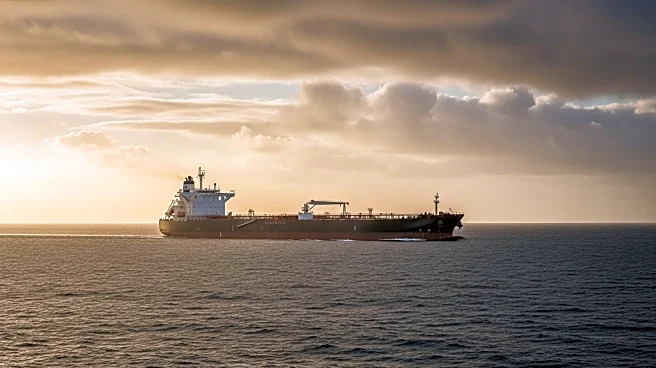What is the story about?
What's Happening?
Sinopec, a major Chinese refining group, has rerouted a supertanker originally destined for the Rizhao port in Shandong province following U.S. sanctions on the terminal. The sanctions were imposed due to the terminal's involvement in receiving Iranian oil on sanctioned vessels. As a result, Sinopec has instructed several subsidiary refineries to reduce crude processing rates to 80% for the remainder of October. The supertanker, New Vista, carrying Abu Dhabi's Upper Zakum crude, has changed its destination to the ports of Ningbo and Zhoushan, with arrival expected on October 15. The Rizhao terminal, a significant hub for Sinopec's crude imports, is half-owned by a Sinopec logistics unit.
Why It's Important?
The U.S. sanctions on the Rizhao terminal highlight ongoing geopolitical tensions and their impact on global oil trade. Sinopec's decision to reroute the supertanker and reduce processing rates underscores the immediate operational challenges faced by Chinese refineries. This development may affect Sinopec's crude supply chain and refining output, potentially influencing global oil prices and market stability. The sanctions reflect broader U.S. efforts to curb Iranian oil exports, which could lead to shifts in international trade patterns and strategic alliances within the energy sector.
What's Next?
Sinopec may need to adjust its import strategies and explore alternative supply routes to mitigate the impact of the sanctions. The company could face increased operational costs and logistical challenges as it navigates the altered trade landscape. Additionally, the U.S. sanctions may prompt further diplomatic negotiations or retaliatory measures from China, potentially affecting broader international relations and trade agreements. Industry stakeholders will likely monitor the situation closely to assess its implications for global oil markets and supply chains.
















